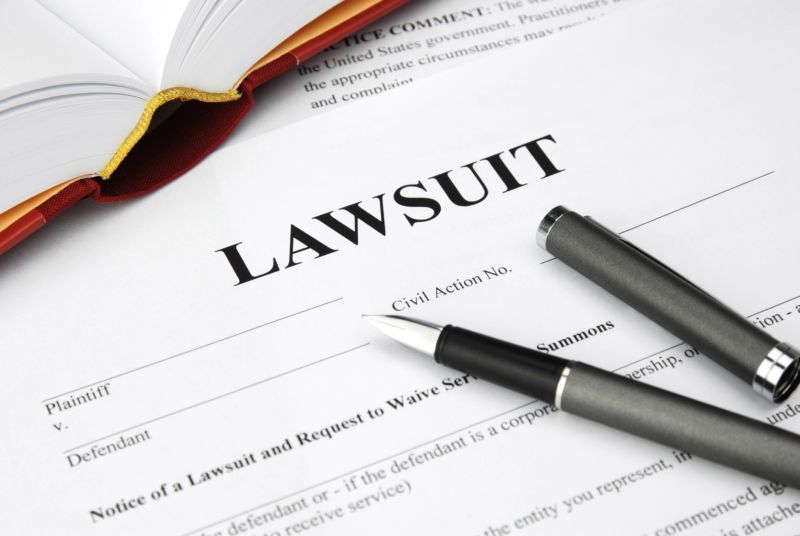
Internet service providers today sued New York to block a state law that requires ISPs to sell $15-per-month broadband plans to low-income households.
The lawsuit was filed by lobby groups including USTelecom and CTIA–The Wireless Association, both of which count Verizon and AT&T among their members. Lobby groups for many other ISPs also joined the lawsuit, with plaintiffs including NTCA–The Rural Broadband Association, the Satellite Broadcasting & Communications Association, and the New York State Telecommunications Association. The biggest cable lobby group, NCTA, did not join the lawsuit, but a cable lobby group representing small providers—America’s Communications Association—is one of the plaintiffs suing New York.
New York enacted its cheap-broadband law two weeks ago and called it a “first-in-the-nation requirement for affordable Internet for qualifying low-income families.”
With this law, New York “seeks to regulate broadband rates,” the ISPs’ complaint said. “A provision of the recently enacted New York State Fiscal Year 2022 Budget requires wireline, fixed wireless, and satellite broadband providers—no later than June 15, 2021—to begin offering to qualifying low-income consumers high-speed broadband service at a cost to consumers of $15 per month or higher-speed broadband service at a cost to consumers of $20 per month.” ISPs claim the state requirement is preempted by federal law.
Cuomo: “Bring it on”
The lawsuit was filed in US District Court for the Eastern District of New York. The broadband lobby groups asked for preliminary and permanent injunctions preventing enforcement of the law.
“I knew giant telecom companies would be upset by our efforts to level the playing field, and right on cue, they’re pushing back,” New York Gov. Andrew Cuomo said today. “Let me be abundantly clear—providing Internet in the Empire State is not a god-given right. If these companies want to pick this fight, impede the ability of millions of New Yorkers to access this essential service, and prevent them from participating in our economic recovery, I say bring it on.”
The state law requires $15 broadband plans with download speeds of at least 25Mbps, with the $15 being “inclusive of any recurring taxes and fees such as recurring rental fees for service provider equipment required to obtain broadband service and usage fees.”
ISPs can alternatively comply by offering $20-per-month service with 200Mbps speeds, and price increases would be capped at two percent per year. The state is required to review download speed requirements within two years and at least once every five years thereafter to determine whether they should be raised. Minimum upload speeds are not specified by the law.
Pai’s deregulation cited by ISPs
The ISPs claimed that New York’s law conflicts with the Federal Communications Commission decision, taken under then-Chairman Ajit Pai, to deregulate the broadband industry (and eliminate net neutrality rules in the process). The FCC deregulation order declared “that broadband is an interstate information service that should not be subject to common-carrier regulation,” the lawsuit said. “The Rate Regulation conflicts with that decision, as well as the Communications Act, by compelling providers to offer broadband on a common-carrier basis: at state-set rates and terms to all eligible members of the public.”
The ISPs also claimed that the low-income broadband law “intrudes into an exclusively federal field. More than a century ago, Congress enacted legislation that occupied the field of interstate communications service and, thereby, precluded states from directly regulating those services. In violation of that long-standing law, the Rate Regulation expressly seeks to set the rates and speed of an interstate communications service. No state has ever successfully engaged in such regulation.”
States can regulate broadband through consumer-protection powers, and New York will argue that its cheap-broadband requirement is not preempted by federal law. The broadband industry similarly claimed that a California net neutrality law is preempted by federal law, but US District Judge John Mendez in February rejected that argument and refused to give the industry a preliminary injunction blocking the California law.
The California case also involves a rate-regulation claim, as ISPs argue that California’s ban on ISPs charging online services for data-cap exemptions is improper rate regulation. While Mendez found that the California law isn’t rate regulation, the ISPs may have a better case in New York, where the state is requiring them to offer a specific plan at a specific price.
On the other hand, the Pai-led FCC’s abdication of its Title II regulatory authority over broadband reduced its power to preempt state laws. “[I]n any area where the Commission lacks the authority to regulate, it equally lacks the power to preempt state law,” the US Court of Appeals for the District of Columbia Circuit wrote in 2019, when it struck down Pai’s attempt to preempt all state net neutrality laws.
“AT&T/Verizon have sued to block NY’s broadband price regulation law and I am here to remind you the big ISPs did this to themselves,” Ernesto Falcon, senior legislative counsel for the Electronic Frontier Foundation, wrote on Twitter. “Lobbying to get rid of the FCCs authority invoked a counter push. They wanted to be unregulated monopolies and thought no one would stand against [them].”
https://arstechnica.com/?p=1761666

